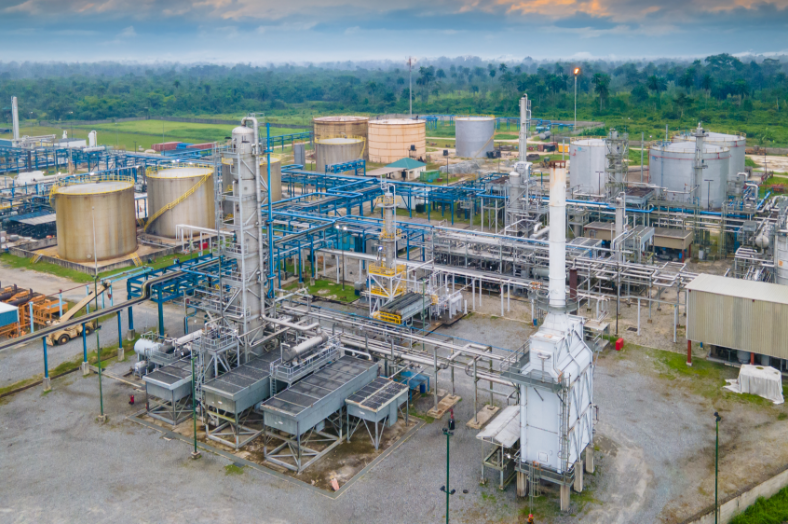Energy
Full deregulation will curb fuel smuggling —Experts
Some oil and gas experts on Friday said full deregulation of the downstream sector of the petroleum industry was the only sustainable way to curb smuggling of petrol to neighbouring countries.
The experts said in interviews in Lagos against the backdrop of frequent smuggling of petroleum products outside the country.
An energy consultant, Mr Ademola Adigun said market liberalisation remained the best option to reduce smuggling of petrol outside the country.
Adigun said competition was the most effective way to control market forces, adding that the best sanctions would not replace the need for price equalisation.
“The best sanctions will not replace the need for price equalisation. The key is still market liberalisation.
“The best option is to allow market forces to control the price,” he added.
Executive Director, Pinnacle oil and gas Ltd.,Mr Robert Dickerman said ending subsidy payment to marketers would curb smuggling of petrol to other countries.
According to him, if government stops payment of subsidy, the problem will be solved immediately.
Ayodele Oni, Partner, Broomfield Law Practice, said crude oil theft (referred to as illegal bunkering) remained one of the biggest challenges facing the Nigerian oil and gas sector.
Oni said illegal bunkering in Nigeria was the largest globally by volume, with up to 20 per cent of Nigeria’s oil output systematically stolen, illegally refined, sold or diverted.
According to him, “To curb this cankerworm, the Federal Government may need to adopt the following strategies: tighten security around the Niger Delta region, more scrutiny within export terminals in Nigeria.
“Government also needs to liaise with the Local Governments where the crude oil assets are located, adoption of modern technologies to monitor pipelines and track crude oil transportation and ultimately, developing Nigeria’s refining capacity, amongst others.”
The expert said the adoption of these strategies would in no small measure help to curb the illegal bunkering of petrol to neighbouring countries.
To reduce these acts of illegal bunkering in Nigeria, Oni said the focus must be placed more on the implementation of existing sanctions, than the issuance of new sanctions.
He said the existing Nigerian laws had already provided for strict sanctions for illegal bunkering.
He advised that the different arms of government must, therefore, work collectively if Nigeria was to stand a chance against illegal crude oil bunkering.
Energy
Communities demand accountability of 3% HCDT from OML54


Members of OML54 communities have asked Aradel Holdings Plc, to make available the details of the 3percent host community development fund accruable to the community as enshrined in the Petroleum Industry Act, PIA.
The people who made the demand during a town hall meeting with the management of Aradel Holdings Plc, insisted that the host communities ought to know how much has accrued to them from the 3 percent HCDT fund, either quarterly or annually.
Aradel, formerly known as Niger Delta Petroleum Resources Plc, NDPR is the operator of OML54 and Aradel Modular Refinery in Ahoada East and Abua/Odual Local Government Area of Rivers State. The company in the past, has been at loggerheads with its host communities leading to endless protests.
Speaking, the General Secretary of Ogbele community, Comrade Solomon Oyagiri, lamented that Aradell Holdings has not accorded the community its due, despite developmental promises made by its pioneer Managing Director, Aret Adams.
Oyagiri cited the continuous refusal by the company to give details of the 3 percent development fund accrued to it as one of the vexing situations created by the company, and queried the non payment of equitable fees from badges and vessels trucking at the community river bank.
He alleged that the selective justice created to cover the fraud and mismanagement of the host community trust fund was the bane of development, progress and the cause of myriads of litigations to contest injustice and marginalisation by the people and urged the company to align with genuine community representatives.
“A Post Environmental Impact Assessment, as a result of hazardous pollution and accompanying economic deprivation and social benefits to numerous fishermen and women arising from Aradel’s trucking operations on its coastal lines has not been carried out.
“We frowned at the continuous refusal by Aradell Holdings Nigeria Plc to implement the agreement reached with the community after the September 2022 peaceful protest. Even some staff of Aradel have teamed up with some of our community members to thwart the reached agreement.
“Aradel has refused to employ our sons and daughters from the host families into managerial positions; there is lack of total employment, refusal to adhere to the Local Content Act and impoverishment of our people through lack of award of contracts.”
Responding, the Community Relations Manager, Aradel Holdings Plc, Mr Blessing Okpowo, promised to take their demands to the management and assured the people that the community’s maternity home would soon be upgraded to a cottage hospital where healthcare services would be accessible and affordable.
Okpowo urged the people to be united in their demands and affairs, saying, “only unity of purpose can attract the needed development,” and assured the people of a regular interface with the community leadership.
Energy
FG reverses halt on transfer of electricity oversight to states


The federal government has reversed its decision to halt the transfer of electricity regulatory oversight to state governments.
On Monday, Adebayo Adelabu, the Minister of Power, addressed the two-day stakeholders’ workshop organised by the Nigerian Electricity Regulatory Commission (NERC) in Lagos.
The workshop, focused on the implementation of the Electricity Act, was attended by the 36 state commissioners of energy and power.
The Minister’s remarks followed an announcement made a few days earlier regarding plans to pause the transfer of regulatory autonomy to states and to conduct a test phase with select states.
This announcement had led to confusion about whether the minister had the authority to issue such a directive contrary to the Act.
However, at the workshop, Adelabu clarified that the federal government would adhere to the law.
“Granting regulatory autonomy to states is a provision of the new Act, and no individual can override the Act. It’s a legal provision that must be respected by all state officials,” he stated.
Adelabu also noted that the workshop aimed to address potential challenges during the transition.
In April, NERC had transferred oversight of the electricity market to three states: Ondo, Ekiti, and Enugu.
The Electricity Act requires NERC to transfer oversight within six months after a state complies with the legal process.
Energy
Oil inches upward following report surrounding the death of Iran’s president


Oil prices saw a slight increase on Monday following report surrounding the death of Iran’s President Ebrahim Raisi, his foreign minister and others in a helicopter crash. The development is seen to have contributed to the overall market sentiment, which also included last week’s gains.
Brent oil futures for July saw a 0.3 percent rise, reaching $84.19 a barrel, while West Texas Intermediate (WTI) crude futures experienced a 0.2 percent increase, trading at $79.70 a barrel.
In a tragic turn of events, a helicopter carrying Iranian President Ebrahim Raisi and Foreign Minister Hossein Amirabdollahian crashed over the weekend in the mountainous terrain of northwestern Iran, with both leaders report dead. The loss of President Raisi comes at a time of heightened tensions between Iran and Israel, following a series of strikes exchanged earlier this year.
Prior to the report, crude oil prices had been experiencing an upward trend due to several key factors. Positive indicators such as the possibility of U.S. interest rate cuts and improving demand in China have contributed to this increase in appetite for crude.
Furthermore, the U.S. government’s announcement of its purchase of approximately 3.3 million barrels of oil to refill the strategic petroleum reserve has also bolstered market confidence. However, ongoing instability in the Middle East and its potential impact on oil supplies remains a significant concern, keeping Brent oil prices above the $80 mark for most of 2024.
As the week unfolds, oil markets are exercising caution in anticipation of crucial announcements regarding U.S. interest rates and the economy. The release of the Federal Reserve’s late-April minutes and speeches from several Fed officials would also be closely scrutinised for insights into potential policy shifts.
Additionally, the upcoming Organization of Petroleum Exporting Countries and allies (OPEC+) meeting on June 1st is expected to provide updates on the cartel’s plans to maintain ongoing production cuts, which could have a significant impact on global oil supplies.
-
Finance4 months ago
Court orders Sen. Victor Umeh to repay N136m bank debt to AMCON
-



 Abuja Update3 months ago
Abuja Update3 months agoUNDP, FG partnership needed to achieve inclusion, equity- Minister
-
Abuja Update2 months ago
Banks drive stock market performance with N147bn gain
-
capital market2 years ago
Rt.briscoe, FBNH, Others halts negative performance of stock market
-
Submission Guidelines5 months ago
CALL FOR SUBMISSIONS: POETRY COLUMN-NND
-



 Health1 month ago
Health1 month agoCapacity training will reduce migration of health workers- NPHCDA
-



 Business4 weeks ago
Business4 weeks agoTingo Group unveils Tingo Electric, Tingo Cola drink at Lagos launch
-
News5 months ago
Oil thieves sponsoring malicious media campaign against Navy – Spokesman






